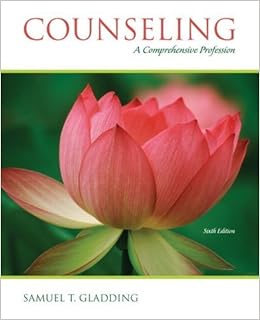
Introduction
Defining counseling
Goals of counseling
Distinction between guidance, counseling and psychotherapy
On becoming a counselor
Characteristics of effective counselors
Roles and responsibilities of counselors
Building Counseling relationship
Definition and description of therapeutic relationship
Factors influencing counseling process: structure, initiative, physical setting, client qualities
Counseling relationship: the core conditions, genuineness, Unconditional positive regard, empathetic understanding, concreteness.
Working in counseling relationship
Counselors skills in the understanding and action phases
Changing perceptions, leading, immediacy, multi focused responding, accurate empathy, self-disclosure, humor, Confrontation, transference and counter transference)
Termination of counseling relationship
Function of termination
The process of termination
Timing of termination
Issues of termination
Ethical and legal aspects in counseling
Ethics , morality and law
Professional code of ethics and standards,
Making ethical decisions,
Clients rights and records
Assessment in counseling
Importance and process of assessment
The assessment interviews ( essentials and techniques)
Types of interviews ( information oriented interviews, relationship oriented interviews, intake interview, case history interviews, crisis interview, diagnostic interview)
Mental status examination
Use of test in counseling
Uses and purposes of tests in counseling
Intelligence tests,
personality tests,
aptitude tests, Achievement test,
Counseling techniques
Behavioral: Process and application ( techniques and procedures)
Person centered Counseling: Process and application ( techniques and procedures)
Cognitive Behavioral Counseling: Process and application ( techniques and procedures)
Existential Counseling: Process and application ( techniques and procedures)
 Counseling a comprehensive profession
by
Counseling a comprehensive profession
by
 Introduction to clinical psychology science, practice, and ethics
by
Introduction to clinical psychology science, practice, and ethics
by